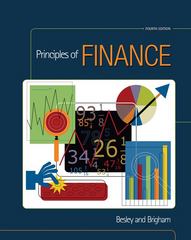Answered step by step
Verified Expert Solution
Question
1 Approved Answer
As a finance officer at your company, you have been asked to conduct an analysis of the possible impact on your corporation of the new
As a finance officer at your company, you have been asked to conduct an analysis of the possible impact on your corporation of the new currency, the euro, which started circulating on January 1, 2002, in 12 of the 15 European Union member countries. International sales are important to the company and are expected to increase continuously in the future. The prospects for substantial growth from international sales will depend on the correct management of European markets and finances. (Although the euro started circulating on January 1, 2002, it was launched on January 1, 1999 and so euro-denominated bonds and equity already existed on January 1, 2002 and are increasing.) In setting up the analysis, you decide to begin with fundamental definitions. What are the definitions of the following foreign exchange terms? Foreign exchange market Reduction in foreign exchange risk Spot transaction Forward exchange rate Forward transaction Appreciating currency Depreciating currency Exchange rate overshooting Pegged exchange rate Dollarization Explain how an increase in the interest rate in Europe would affect the interest rate in the United States and the dollar-euro exchange rate under the theory of Interest Parity Condition. What factors does this theory leave out? State the possible impact of the euro on the following: The interest rates in various Euro-zone countries The interest rate in the United States The size of capital markets in Europe The average size of banks in Europe The number of banks in Europe Foreign exchange revenues for banks The strength of the dollar Fiscal policy flexibility for euro-zone countries Monetary policy flexibility for euro members Explain why foreign exchange rates are important to your company. How would changes in the exchange rate between the euro and the dollar affect the sales and net profits of your company? In the long run, will the creation of the euro boost your company's international business volume? Your company plans to issue euro-denominated bonds. Will it matter whether you hire a Dutch bank or an Italian bank? Why or why not? Use the dollar and interest rate figures in your text to explain the need to distinguish between real and nominal interest rates when predicting exchange rate movements. Assume that today is January 1, U.S. $1.00 = .90 euros, and the interest rate on dollar deposits is 3%. If in one year: the dollar appreciates relative to the euro by 10%, what will be the return on dollar deposits in terms of euros? the dollar depreciates relative to the euro by 20%, what will be the return on dollar deposits in terms of euros? the expected exchange rate is U.S. $1.00 = .95 euros, what is the expected rate of depreciation for the dollar? the dollar is expected to appreciate 5%, what interest rate on euro deposits is required if the concepts of interest-rate parity and capital mobility are to hold
Step by Step Solution
There are 3 Steps involved in it
Step: 1

Get Instant Access to Expert-Tailored Solutions
See step-by-step solutions with expert insights and AI powered tools for academic success
Step: 2

Step: 3

Ace Your Homework with AI
Get the answers you need in no time with our AI-driven, step-by-step assistance
Get Started


